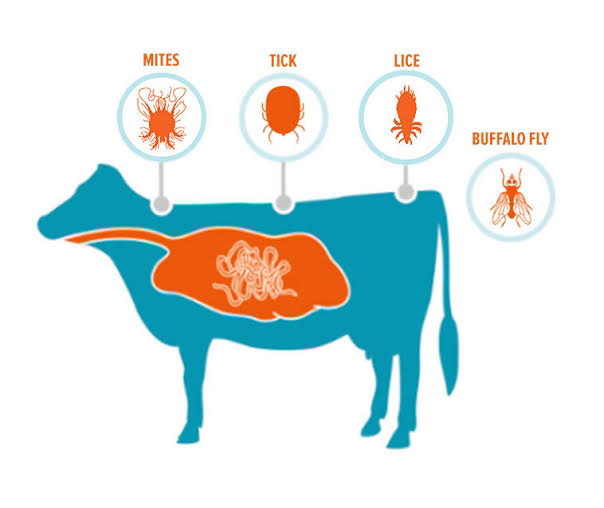Blood parasitic control programs on dairy farms in Pakistan, including a deworming schedule and some clinically important parasites.
In Pakistan, where the environment can be favorable for parasites, dairy farmers follow specific measures to control blood parasites. One commonly used deworming schedule involves deworming cows every 3-4 months, depending on the specific parasite prevalence in the area. This helps ensure that the cows are protected from internal and external parasites throughout the year.
Now, let's talk about a few clinically important parasites in Pakistan:
1. Haemonchus contortus: Also known as the barber's pole worm, this parasite is a major concern for dairy farmers. It primarily affects the abomasum (the fourth stomach) of cows and can cause anemia, weight loss, and decreased milk production.
2. Fasciola hepatica: This liver fluke is prevalent in areas with wet and marshy conditions. It infects the liver and can cause liver damage, reduced appetite, weight loss, and poor milk production.
3. Ixodes ricinus: This tick species is responsible for transmitting various diseases, including babesiosis and anaplasmosis. These diseases can lead to fever, anemia, loss of appetite, and decreased milk production.
To effectively control these parasites, farmers often use a combination of dewormers, acaricides (tick control products), and vaccines. The choice of dewormers and other treatments may vary depending on the specific parasite and the veterinarian's recommendations.
It's important for farmers to work closely with veterinarians to develop a comprehensive blood parasitic control program tailored to their farm's needs. Regular monitoring, including fecal egg counts and clinical examinations, helps assess the effectiveness of the control program and make adjustments if necessary.
Remember, the specific measures and strategies may vary depending on the farm's location and individual circumstances. Consulting with local veterinarians and agricultural experts is crucial for successful blood parasitic control on dairy farms in Pakistan.Pakistan Dairy Forum

Comments